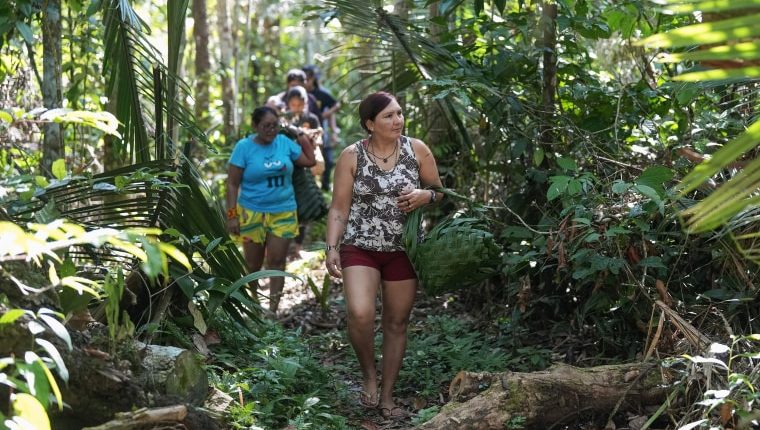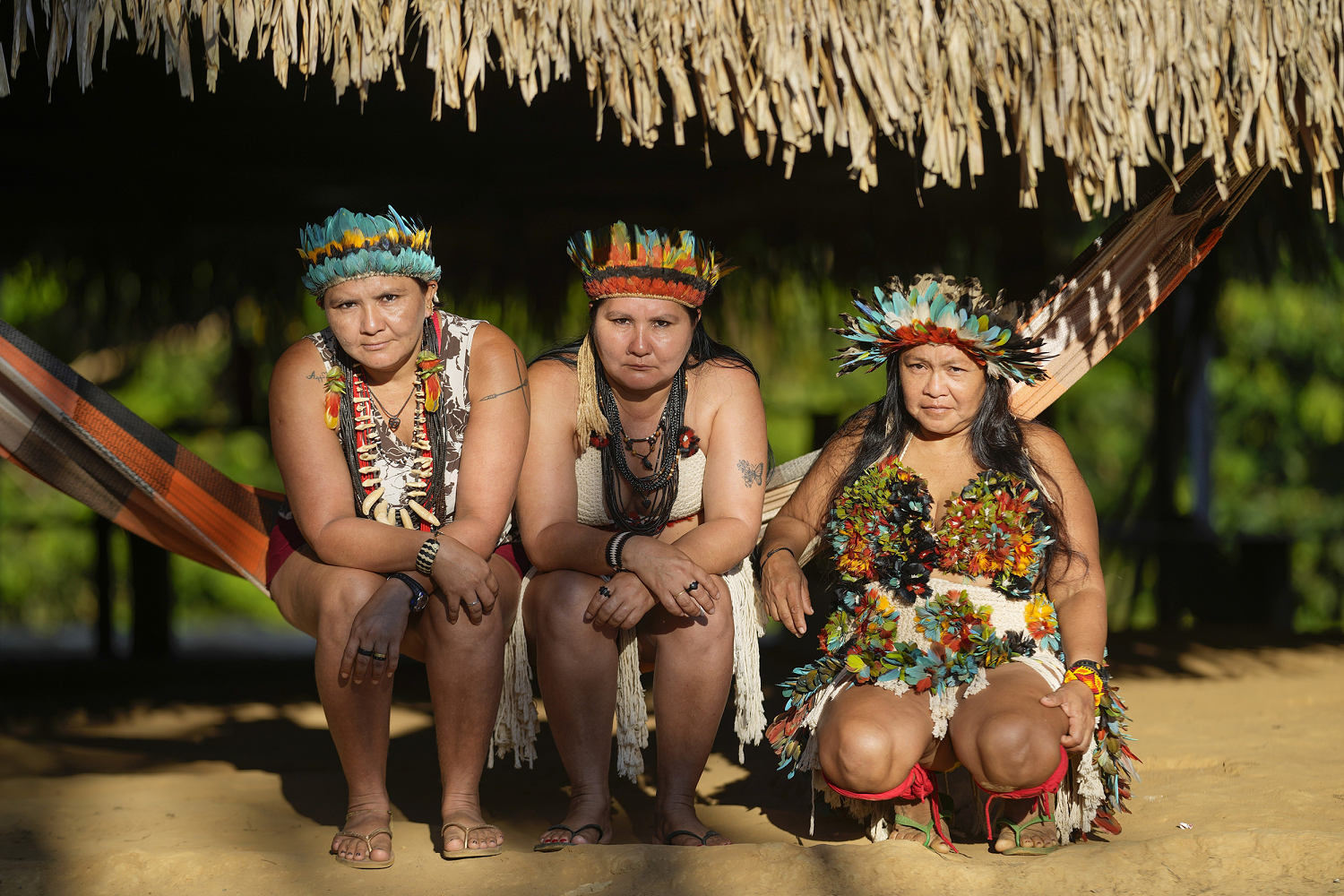Juma Indigenous Territory, Amazonas, Brazil — At night, in this village near the Assua River in Brazil, the rainforest reverberates. The sound of generators at times competes with the forest, a sign that there are people here. Until recently, the Juma people seemed destined to disappear like countless other Amazon tribes decimated by the European invasion.
In the late 1990s, the last remaining family was made up of three sisters, Boreá, Mandeí, and Maytá and their father, Aruká, in his 50s. In 2021, Aruká died of COVID-19, prompting obituaries like the one in The New York Times that said the “ last man of his tribe ” was gone, pushing the Juma, a patriarchal society, closer to extinction. Or so it seemed.
The sisters and their father had another plan.
“I became interested in trying to gather more strength,” said Mandeí Juma. “So, I started taking on the role of the leader, the first woman to do so. My sisters and my father encouraged me to assume the position.”
In fact, she was the first woman to become a chief in this part of the Amazon. On her left arm is a tattoo of her father’s bow and arrow. The actual bow and arrows are in her home, shown with pride to a visitor.
During a forced relocation earlier in their lives, Mandeí and her sisters made the decision to marry men of other tribes, maintaining their people’s lineage, despite a patrilineal tradition.
Today, against long odds, the Juma are making a comeback. In their territory, a two-hour boat trip from the nearest road, their village is full of life.
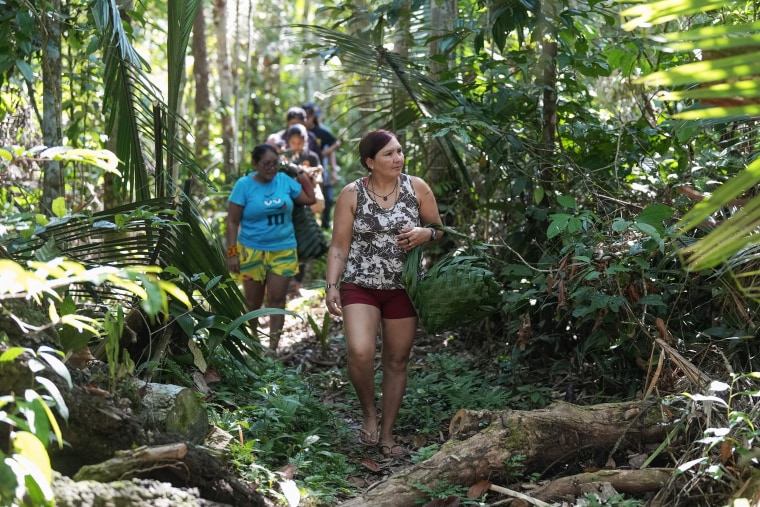
Children of varied ages play in the river. People fish with nets and rods, throwing back the small fish. Women grind cassava into flour, manually, preserving scarce fuel for the generators at night. Others are out hunting.
Throughout the day, people gather at a soaring maloca, or common building, designed in the traditional Juma way, to eat, tend their macaws and parrots, lounge on hammocks during the warmest hours, pound cassava, and check WhatsApp messages on their cellphones, connected to the internet by a dish antenna.
Aruká, the women’s father, is buried under the maloca.
Mandeí has been Juma chief for more than a decade now, recently stepping down in favor of her older sister, Boreá. She left behind long ago her initial adjustment to travel and leadership.
“Because we were few, people didn’t recognize us, didn’t respect us,” she said. “There had never been a woman leader before, and then people came to tell me, ‘You shouldn’t have assumed it because you’re a woman.’”
At first, that hurt, she said. Then she stopped caring.
“I adapted to seek solutions for our people,” she said.
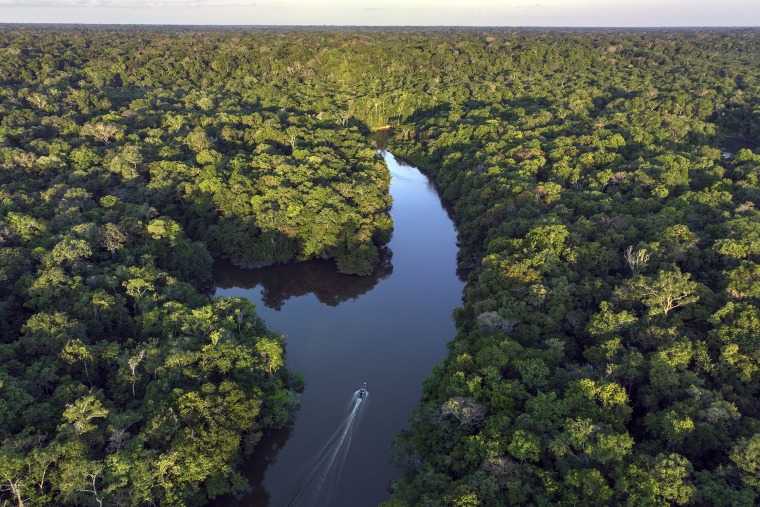
The Juma Indigenous Territory, roughly the size of Las Vegas, is covered by old-growth Amazon rainforest. A top priority is to protect their territory, located in the south of Amazonas state, a hotspot of land-grabbing and illegal deforestation.
Mandeí fears they could be invaded the same way as the Uru-eu-wao-wao village where she grew up. Once immersed in the forest, it is now surrounded by pasture illegally planted by non-Indigenous invaders.
The planned paving of a highway next to the territory increases the likelihood of being invaded by land-grabbers. Cattle farming and soybean crop expansion across the region are palpably changing the environment and having a negative impact on their traditional way of life.
“The river doesn’t fill with water as it used to … The water shouldn’t dry up so much like this. It’s much hotter, it wasn’t like this before. Our concern is this: Why is this happening? Because of deforestation,” she said.
To protect against this, young men, including Mandeí’s nephew Puré, patrol the territory by boat. They use drones donated by a local Indigenous non-profit, Kaninde, to monitor the most remote areas against loggers, poachers and fishermen.
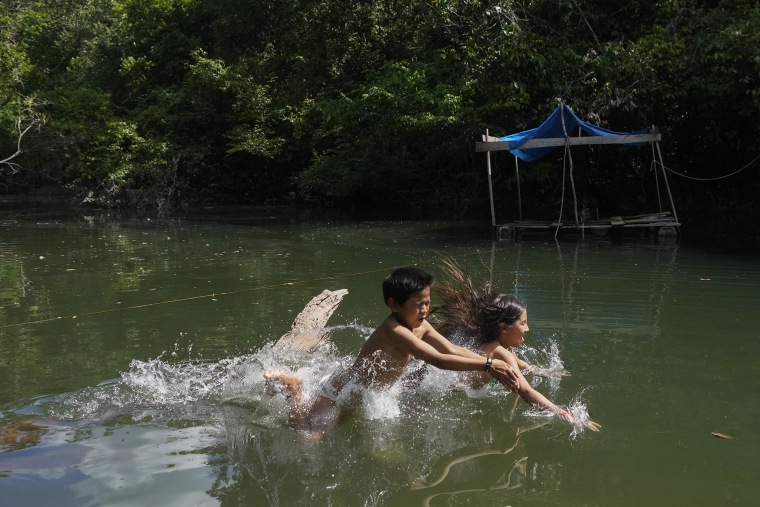
“I kind of broke the anthropology rules and followed my mother’s lineage,” 22-year-old Puré proudly told the AP in an interview in the maloca. “If I don’t identify myself as Juma, who else will?”
His mother, Boreá, married a man from the Uru-Eu-Wau-Wau. Following a tradition among Indigenous Brazilians, he was registered with his tribe father’s name as his surname. But when he was 15 years old, he went to Brazil’s Indigenous bureau, Funai, and demanded to add his mother’s tribe. Now his full name is Puré Juma Uru-Eu-Wau-Wau.
Two of his cousins adopted Juma as a last name, too: Ana Índia and Shakira, the latter named after the Colombian singer.
The Juma most likely numbered a few thousand before contact, but they resisted non-Indigenous invaders and suffered several massacres in reprisal. The last one happened in 1964, on the order of local trader, as described in a book by German missionary Günter Kroemer.
An estimated 60 people were killed, including children. Aruká, one of the few survivors, lost his father. His mother would die years later of malaria, a disease introduced in the Amazon by non-Indigenous people.
In 1998, as the six remaining Juma were struggling to survive, Brazil’s Indigenous bureau, Funai, transferred them to an Uru-Eu-Wau-Wau village, located a few hundred miles away.
Despite sharing the same language, Kawahíva, the elders struggled to adapt. A few months after the arrival, Aruká’s sister and her husband died of sadness, according to an account on the Amazonia Real news website.
Aruká, unhappy and restless, pressured Funai to return to his home village, with his first three daughters, the place that would eventually become officially recognized as Juma and return to life.
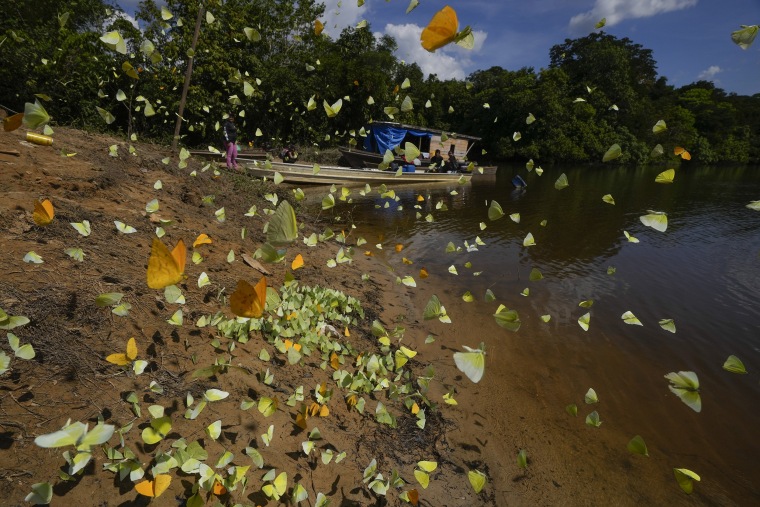
For Mandei, her people’s language has also been key to this survival. She invited a linguist, Wesley dos Santos, to visit in 2019. As part of this collaboration, a multimedia dictionary was created for cellphones, along with an online collection of digital archives with traditional narratives, monologues, and songs in the Juma language.
Kawahiva is a severely endangered Amazonian language, spoken by approximately 560 people with 8 variations, including Juma, explains Santos, a graduate student at the University of California at Berkeley.
Despite all these recent achievements, Mandeí remains concerned — a word she repeated ten times during the interview — about the future of Juma. The 24 inhabitants of their village are still very few, and there are not enough Juma men to increase their population, she reckons. More than ever, the three women are grappling with how to pass down Juma’s traditions to the next generations.
“The largest responsibility I share with my sisters is to not lose Juma culture as taught by our father,” Mandeí said.
Source: | This article originally belongs to Nbcnews.com
